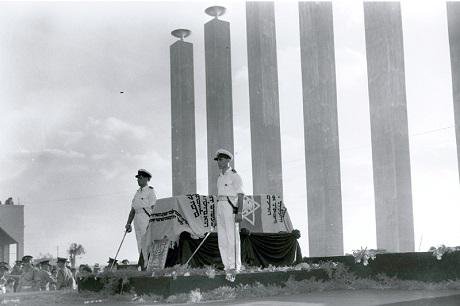
The third characteristic: Canonical Zionism saw international legitimacy as the political-legal foundation for establishing the state, and sought to rely on the “natural rights” to self-determination that every nation has.

> The last truly Zionist institution and most Jewish newspaper in the world | Opinion ■ If Democratic candidates cosy up to radical anti-Zionist Jews, they can kiss the 2020 elections goodbye | Opinion Messianic Zionism welcomes settlement in a biblical fashion: “As it is written, ‘And you shall take possession of the land and settle in it, for I have assigned the land to you to possess.’ About which Rashi interpreted to mean ‘You shall take possession of the land from its inhabitants and then you will settle in it,’” Felix explained. “I consider it utterly impossible to eject the Arabs from Palestine,” Ze’ev Jabotinsky declared in “The Iron Wall” in 1923.

The second characteristic: Canonical Zionism saw in its vision of Jewish settlement a Jewish majority next to an Arab minority. “We settled … because we were commanded to inherit the land that God Almighty gave to our forefathers,” Menachem Felix, a leader of Gush Emunim, declared in a hearing at the High Court of Justice regarding the settlement of Elon Moreh in 1979. “Let sovereignty be granted us over a portion of the globe adequate to meet our rightful national requirements we will attend to the rest,” Theodor Herzl wrote in “The Jewish State.” Nationalist-messianic Zionism, however, sees the divine commandment to fulfill the biblical promise as the motivation for establishing of the state. First, canonical-secular Zionism saw the need of the Jewish people for a safe shelter as the motivation for establishing the state. However, the two are actually different national visions that contradict one another and compete over the determination of the character, identity and regime in the State of Israel moreover, their ability to coexist is conditional upon the identity of the controlling worldview.įive fundamental characteristics differentiate the two.

The two are perceived as nuances of one shared ideology, similar to the differences between spiritual-cultural Zionism and political Zionism, or between them and practical Zionism. Zoltan Kluger / Israel State ArchivesĪ perception has taken root in Israeli society that canonical, secular Zionist and nationalist, messianic religious Zionism can live side by side in this country. Members of Ma'abarot on their way to work, pre-state Israel, 1939.


 0 kommentar(er)
0 kommentar(er)
